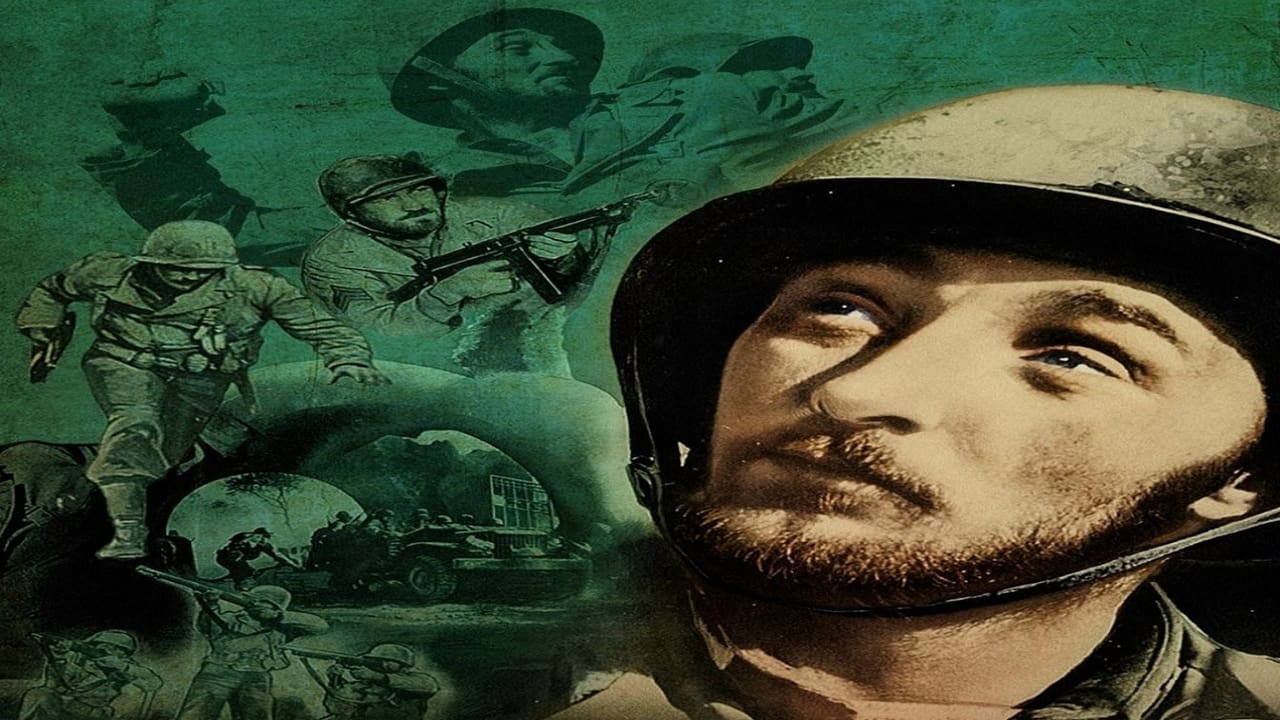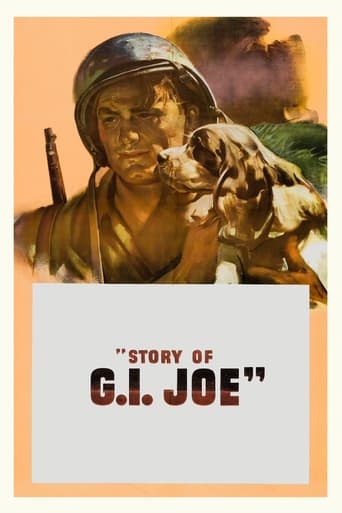

I like the storyline of this show,it attract me so much
... View MoreIt's not great by any means, but it's a pretty good movie that didn't leave me filled with regret for investing time in it.
... View MoreTells a fascinating and unsettling true story, and does so well, without pretending to have all the answers.
... View MoreClose shines in drama with strong language, adult themes.
... View MoreThe US North African and Italian campaigns of World War 2, as seen through the eyes of a company of infantrymen. More particularly, this is the story of Ernie Pyle, famed war correspondent. His writings brought the war home to America and told the story of the war from the perspective of the average US soldier.Good depiction of the US North African and Italian campaigns of WW2, as seen from the perspective of average infantry soldiers, and a distinguished journalist. Initially not that engaging, it gets better as it goes along. Very gritty by the end.Solid performances from Robert Mitchum and Burgess Meredith. Good supporting performances too.
... View MoreThe term "G.I. Joe" has become so closely associated with the image of a certain toy that it is now largely forgotten that it was originally coined to describe the ordinary American foot soldier. Likewise, it is now largely forgotten just exactly who Ernie Pyle was and what he meant to the American people and, more especially, to the ordinary soldiers about whom he wrote.My father took a photograph of Ernie Pyle in the Pacific in 1945, shortly before Pyle was killed. At the time Pyle was surrounded by a mob of admiring G.Is. You'd have thought they were in the presence of Bettie Grable or Rita Hayworth rather than a short, balding, middle aged newspaper-man. When Pyle was killed in action a few days later while accompanying the infantry, the solders erected a monument at the place where he died. On it were engraved the words, "On this spot the 77th Division lost a buddy", and they really meant it. It's inconceivable that troops today would do anything like that for one of the current crop of CNN-generation reporters.The reason isn't hard to fathom. Most war correspondents hung around the rear echelon, hobnobbing with the general staff and forwarding dispatches from headquarters, and they still do. Pyle, on the other hand, lived with and wrote about the common infantrymen who were actually fighting the war. He ate their food, drank their coffee and shared their hardships through three grueling years of war from North Africa through Sicily to the European mainland, and then later on in the Pacific, where he was killed. Pyle became the spokesman for the common soldiers, and all their families back home read his syndicated column. There simply wasn't anybody else like him then, and there hasn't been since.Small wonder that William Wellman, himself a combat veteran, thought that this movie needed to be made. The filmmaker had tremendous respect for his subject, and it shows. For example, that poignant last scene is, almost word for word and image for image, straight out of one of Pyle's most famous dispatches. It would have been interesting to learn what Pyle thought of this film. Unfortunately, however, by the time it was released the Pulitzer Prize-winning reporter was already dead.
... View MoreThe quote uttered by Captain Walker in the film,"The new kids that come up, that's what gets you. The new ones, some of them have just got a little fuzz on their faces. They don't know what its all about. Scared to death. You know, Ernie, I know it ain't my fault that they get killed, but it makes me feel like a murderer. I hate to look at 'em, the new kids." was based on something told to Ernie Pyle by Sergeant Buck Eversole of the 34th Infantry Division, as reported in a biography of Ernie Pyle in the book "Ernie's War: The Best of Ernie Pyle's World War II Dispatches." BTW: the story of "Captain Walker" as show in the movie was essentially true, even about how his men felt about his death, but the real captain was named Henry Waskow.
... View MoreDon't understand the other writer's comment about it being 'endless mud.' Yeah, it was, and so was the war. The film shows the weariness, the dirt, the cold and--above all--the futility of war. To think we are still doing it...still sending men and women to lob bombs and bullets at each other...is unbearably sad.Mitchum is excellent as a battlefield-promoted leader. And Meredith is outstanding as Pyle--the actor conveyed the compassion of the correspondent with the lift of an eyebrow, a softly spoken word.This film should be seen in all high schools along with Battleground. Then let the students discuss what they saw and how it applies to today's situation.When will we ever stop throwing rocks/bombs/bullets at each other?
... View More